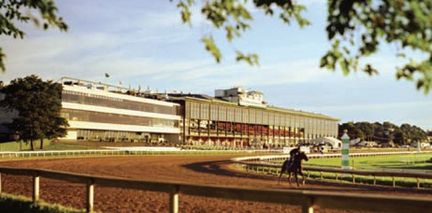“Caesars Entertainment Corporation (CZR) is a highly overvalued gaming, hotel, and entertainment company with deteriorating fundamentals on all levels in a highly competitive environment.” — Aaron Zander, Seeking Alpha.

It’s that moment we’ve all been waiting for, the one where Caesars Entertainment explains how it intends to pay down at least some of its $23.5 billion in debt. The answer? Borrow more money. Near-term debt will be exchanged for long-term notes, to the tune of $4.85 billion. Both the Octavius Tower at Caesars Palace and The Linq will be pledged against the new debt. Poor Linq: Not even finished and already a hostage to the bond market. (Paris-Las Vegas, Flamingo Las Vegas, Harrah’s Las Vegas, Rio All-Suite Hotel & Casino, Harrah’s Laughlin and Harrah’s Atlantic City have also been reported as collateral on the deal.)
Even with some fancy footwork, Caesars’ debt-to-cash-flow ratios make for queasy reading, but bankers doubtless enjoy writing new notes to CEO Gary Loveman, at higher and higher interest rates. Meantime, analysts are talking about a prepackaged bankruptcy of Caesars Operating Co. — where most of the debt is stashed — in terms of inevitability. Given the company’s strategic errors, it’s difficult to see how it avoids Chapter 11.
On a happier note, the World Series of Poker is finally up and running online. It took a little while to work out the kinds. Now we’ll see if the superior WSOP brand equity will negate Ultimate Poker’s early start on the market.
 Cleverly, Loveman has sold the City of Boston a bill of goods on Suffolk Downs. The Boston Globe‘s Mark Arsenault has run the numbers and found that the slots at Suffolk would have to do 2X-2.5X the industry average and generate “astronomical” amounts of money — more even that U.S. leader Resorts World New York, in a much larger market — in order to meet Beantown politicos’ $1 billion/year profit-sharing trigger. UNLV’s David G. Schwartz thinks the actual number is likelier to be in the $600-$700 range. It still looks like Boston got hornswoggled but good by Caesars and Suffolk. Some analysts though say it’s “possible” and could happen, even though Boston negotiated using Ernst & Young numbers that peaked at $917 million a year. Boston is probably out $20 million and Caesars is laughing all the way to the bank.
Cleverly, Loveman has sold the City of Boston a bill of goods on Suffolk Downs. The Boston Globe‘s Mark Arsenault has run the numbers and found that the slots at Suffolk would have to do 2X-2.5X the industry average and generate “astronomical” amounts of money — more even that U.S. leader Resorts World New York, in a much larger market — in order to meet Beantown politicos’ $1 billion/year profit-sharing trigger. UNLV’s David G. Schwartz thinks the actual number is likelier to be in the $600-$700 range. It still looks like Boston got hornswoggled but good by Caesars and Suffolk. Some analysts though say it’s “possible” and could happen, even though Boston negotiated using Ernst & Young numbers that peaked at $917 million a year. Boston is probably out $20 million and Caesars is laughing all the way to the bank.
